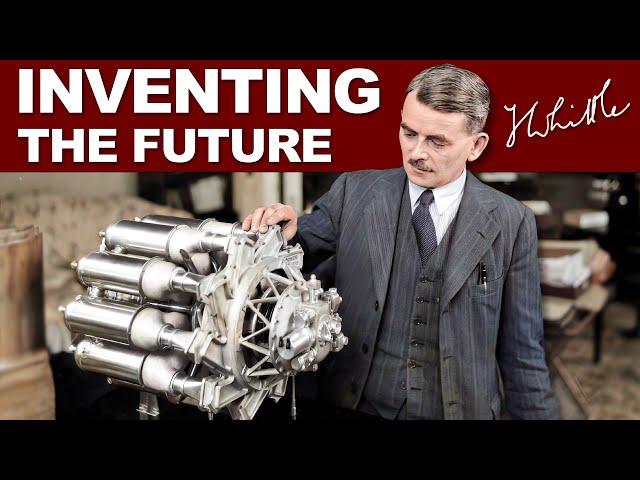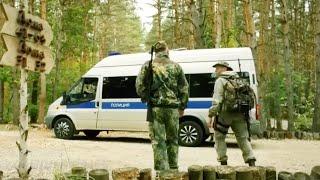
THE JET ENGINE. Inventing The future. British pioneer Sir Frank Whittle. Restored Video
The development of the 'jet propulsion gas-turbine', otherwise known as the jet engine, transformed flying in the post war-era. This was both in military and commercial terms.
Covering the story from the 1920s, The Wonder Jet follows Air Commodore Sir Frank Whittle. Sir Frank plays himself in the film. It moves from his days as a young Royal Air Force (RAF) cadet struggling against all obstacles to realise his dream of the jet engine. Whittle did not produce the world's first jet plane. This honour goes to German Hans von Ohain with the Heinkel He 178 on 27 August 1939. However, Whittle greatly contributed to the advancement of the jet engine, an invention that has proved vital to the modern age.
Whittle's first engine, the Power Jet W.1, was fitted to the British aircraft Gloster Meteor G.40. The first test flight took place on 15 May 1941, although, it did not become operational until 1944.
After the Second World War the jet engine gradually replaced the propeller in squadron after squadron of the RAF. The Canberra, Britain's first jet bomber, entered service in 1951. This was the same year as the public information film Wing to Wing, showcased the RAF's worldwide commitments and new jet aircraft.
In 1929, a twenty-two-year-old maverick named Frank Whittle - a self-taught aeronautical obsessive and risk-takingly brilliant RAF pilot - presented a blueprint for a revolutionary, jet-powered aircraft engine to the Air Ministry. His idea had the potential to change the course of history, but it was summarily rejected.
Air Commodore Sir Frank Whittle, OM, KBE, CB, FRS, FRAeS (1 June 1907 – 8 August 1996) was an English engineer, inventor and Royal Air Force (RAF) air officer. He is credited with inventing the turbojet engine. A patent was submitted by Maxime Guillaume in 1921 for a similar invention which was technically unfeasible at the time. Whittle's jet engines were developed some years earlier than those of Germany's Hans von Ohain, who designed the first-to-fly (but never operational) turbojet engine.
Whittle demonstrated an aptitude for engineering and an interest in flying from an early age. At first he was turned down by the RAF but, determined to join the force, he overcame his physical limitations and was accepted and sent to No. 2 School of Technical Training to join No 1 Squadron of Cranwell Aircraft Apprentices. He was taught the theory of aircraft engines and gained practical experience in the engineering workshops. His academic and practical abilities as an Aircraft Apprentice earned him a place on the officer training course at Cranwell. He excelled in his studies and became an accomplished pilot. While writing his thesis he formulated the fundamental concepts that led to the creation of the turbojet engine, taking out a patent on his design in 1930. His performance on an officers' engineering course earned him a place on a further course at Peterhouse, Cambridge, where he graduated with a First.
Without Air Ministry support, he and two retired RAF servicemen formed Power Jets Ltd to build his engine with assistance from the firm of British Thomson-Houston. Despite limited funding, a prototype was created, which first ran in 1937. Official interest was forthcoming following this success, with contracts being placed to develop further engines, but the continuing stress seriously affected Whittle's health, eventually resulting in a nervous breakdown in 1940. In 1944 when Power Jets was nationalised he again suffered a nervous breakdown, and resigned from the board in 1946.
In 1948, Whittle retired from the RAF and received a knighthood. He joined BOAC as a technical advisor before working as an engineering specialist with Shell, followed by a position with Bristol Aero Engines. After emigrating to the U.S. in 1976 he accepted the position of NAVAIR Research Professor at the United States Naval Academy from 1977 to 1979. In August 1996, Whittle died of lung cancer at his home in Columbia, Maryland. In 2002, Whittle was ranked number 42 in the BBC poll of the 100 Greatest Britons.
Restored and upscaled footage.
Original footage courtesy of: https://www.nationalarchives.gov.uk/
#whittle #jetengine #inventions
Covering the story from the 1920s, The Wonder Jet follows Air Commodore Sir Frank Whittle. Sir Frank plays himself in the film. It moves from his days as a young Royal Air Force (RAF) cadet struggling against all obstacles to realise his dream of the jet engine. Whittle did not produce the world's first jet plane. This honour goes to German Hans von Ohain with the Heinkel He 178 on 27 August 1939. However, Whittle greatly contributed to the advancement of the jet engine, an invention that has proved vital to the modern age.
Whittle's first engine, the Power Jet W.1, was fitted to the British aircraft Gloster Meteor G.40. The first test flight took place on 15 May 1941, although, it did not become operational until 1944.
After the Second World War the jet engine gradually replaced the propeller in squadron after squadron of the RAF. The Canberra, Britain's first jet bomber, entered service in 1951. This was the same year as the public information film Wing to Wing, showcased the RAF's worldwide commitments and new jet aircraft.
In 1929, a twenty-two-year-old maverick named Frank Whittle - a self-taught aeronautical obsessive and risk-takingly brilliant RAF pilot - presented a blueprint for a revolutionary, jet-powered aircraft engine to the Air Ministry. His idea had the potential to change the course of history, but it was summarily rejected.
Air Commodore Sir Frank Whittle, OM, KBE, CB, FRS, FRAeS (1 June 1907 – 8 August 1996) was an English engineer, inventor and Royal Air Force (RAF) air officer. He is credited with inventing the turbojet engine. A patent was submitted by Maxime Guillaume in 1921 for a similar invention which was technically unfeasible at the time. Whittle's jet engines were developed some years earlier than those of Germany's Hans von Ohain, who designed the first-to-fly (but never operational) turbojet engine.
Whittle demonstrated an aptitude for engineering and an interest in flying from an early age. At first he was turned down by the RAF but, determined to join the force, he overcame his physical limitations and was accepted and sent to No. 2 School of Technical Training to join No 1 Squadron of Cranwell Aircraft Apprentices. He was taught the theory of aircraft engines and gained practical experience in the engineering workshops. His academic and practical abilities as an Aircraft Apprentice earned him a place on the officer training course at Cranwell. He excelled in his studies and became an accomplished pilot. While writing his thesis he formulated the fundamental concepts that led to the creation of the turbojet engine, taking out a patent on his design in 1930. His performance on an officers' engineering course earned him a place on a further course at Peterhouse, Cambridge, where he graduated with a First.
Without Air Ministry support, he and two retired RAF servicemen formed Power Jets Ltd to build his engine with assistance from the firm of British Thomson-Houston. Despite limited funding, a prototype was created, which first ran in 1937. Official interest was forthcoming following this success, with contracts being placed to develop further engines, but the continuing stress seriously affected Whittle's health, eventually resulting in a nervous breakdown in 1940. In 1944 when Power Jets was nationalised he again suffered a nervous breakdown, and resigned from the board in 1946.
In 1948, Whittle retired from the RAF and received a knighthood. He joined BOAC as a technical advisor before working as an engineering specialist with Shell, followed by a position with Bristol Aero Engines. After emigrating to the U.S. in 1976 he accepted the position of NAVAIR Research Professor at the United States Naval Academy from 1977 to 1979. In August 1996, Whittle died of lung cancer at his home in Columbia, Maryland. In 2002, Whittle was ranked number 42 in the BBC poll of the 100 Greatest Britons.
Restored and upscaled footage.
Original footage courtesy of: https://www.nationalarchives.gov.uk/
#whittle #jetengine #inventions
Тэги:
#frank_whittle #sir_frank_whittle #frank_whittle_jet_engine #frank_whittle_documentary #jet_man #frank_wittle #jet_man_frank_whittle #whittle_jet_engine #frank_whittle_1937 #turbojet #the_jet_engine #whittle_jet_engine_history #jet_engine_documentary #The_jet_man #frank_whittle_inventions #whittle_engine #jet_engine #first_jet_engine #first_jet_engine_ever #jet_engines #first_jet_engine_plane #jet_plane #aviation_documentary #von_ohain_and_whittle #von_ohainКомментарии:
Natural born winner
GrimzbyGaming
НЕ ОТОБРАЖАЮТСЯ ВХОДЯЩИЕ ЗВОНКИ и ВЫЗОВЫ НА ЭКРАНЕ ТЕЛЕФОНА? ВОТ РЕШЕНИЕ!
Настройка Android, iOS, PC
Six Combine! Transformers CUBE DEVASTATOR! full ver.
5 Minutes Toy
How to Make Your Own Karaoke Playlist on Youtube | Video Tutorial 2020
Pinoy Youtube Tambayan
Charming Historic Home in Greeneville, Tennessee
Sotheby's International Realty
New Online Zen Community | Now Open!
The Zen Gateway


























